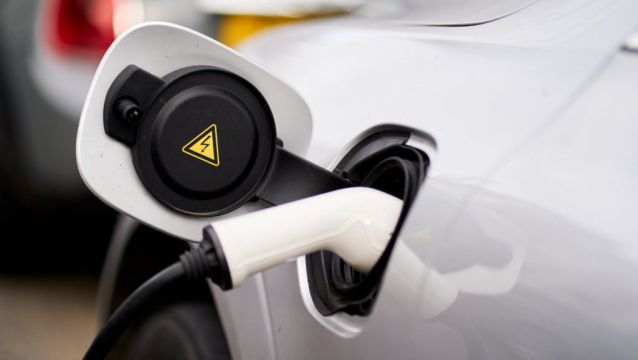Carbon emissions from travel could be slashed by up to 73 per cent through a combination of remote working and the introduction of electric vehicles, research shows.
The NUI Galway and Western Development Commission (WDC) national remote working survey found that if everyone adopted their preferred remote working option, there would be a reduction in emissions of approximately 60 per cent.
The data highlights the economic and environmental impacts and opportunities of working from home since the onset of the Covid-19 pandemic.
Last week the Government announced plans to have one million electric vehicles on Ireland’s roads by 2030, as part of its Climate Action Plan.
Dr Eoghan Clifford, from the college of science and engineering at NUI Galway, said that if this target was reached and people were allowed to work from home as favoured, transport emissions could be significantly reduced.
“If we achieved our remote-working targets, we would likely see about a 73 per cent reduction in total emissions from the combination of remote working plus the introduction of EVs (electric vehicles).
“As respondents indicated to us what their preferred level of remote working was, if they were allowed to adopt that full time, it would result in approximately 60% reduction in commuting emissions from pre to post-Covid.
“If everyone wants to continue as it was during full lockdown that would be almost 90% reduction in commuting-related emissions from pre to post-Covid.
“Looking at a number of scenarios that I suppose will hopefully emerge over the next number of years, one of them we looked at was what would happen if we met our target for approximately one million EVs by 2030.

“It should be said that a million EVs by 2030 would mean that we will have almost one and a half million fossil fuel cars by that stage as well. So you still have a majority of fossil fuel cars, but a very significant number of EVs.”
He warned, however, that the potential for reducing emissions decreases as more people relocate from Dublin to the West or the Midlands.
Dr Clifford explained that as the number of relocations rise, those people face longer commutes to work.
“Based on our data, for every approximately 1 per cent population shift from Dublin, you will get about a 0.2 per cent emissions gain if those people, for example, move to the Midlands,” he added.
Dr Tom McDermott, environmental economist at NUI, said the benefits of relocating will be offset by travelling longer distances.
He said that the majority of people who prefer working from home do so to save time and the costs incurred while commuting.
However, a number of people are prepared to put up with the costs and work from an office for the social benefits.
Dr McDermott also said that people appear to have significant lower promotion rates working from home compared with those who work in the office.
He said this raises a question mark over the longer disadvantages of working from home, particularly around inequality.

“There is a concern of gender effects as the survey shows the long-term impact of career prospects for men and women,” he added.
“There is a potential of an increase in gender inequality of remote working.”
While there is little difference in preference for remote working between men and women, more men with childcare responsibilities prefer working from home than women.







